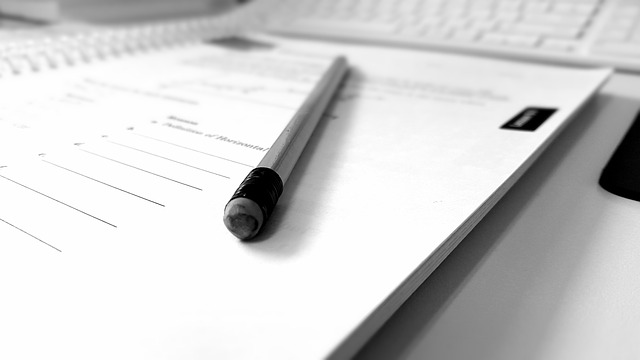What Is The MPRE And Why Do I Have To Take It?
What Is The MPRE And Why Do I Have To Take It?
Almost every jurisdiction requires bar applicants to pass the Multistate Professional Responsibility Exam (MPRE) as a prerequisite to becoming licensed to practice law. In this post, we explain what the exam is and why you have to take it!
What Is The MPRE And Why Do I Have To Take It?
What does the MPRE test?
The MPRE is an ethics test that tests examinees’ knowledge of the Model Rules of Professional Conduct. If you took a Professional Responsibility class in law school, you might have covered the Model Rules and/or the rules specific to your jurisdiction (e.g., the Michigan Rules of Professional Conduct). It is important to learn the Model Rules as there are some differences between the Model Rules and a jurisdiction’s adopted rules. The NCBE has released a subject matter outline that identifies the topics covered on the exam.
What is the format of the MPRE?
The MPRE is comprised of 60 multiple-choice questions. Of those 60 questions, 50 are scored and 10 questions are “test” questions that the NCBE is evaluating for use as scored questions in future administrations.
Beginning with the March 2020 administration, all examinees will take the exam on a computer.
Under normal timed circumstances, the test is 2 hours long. This equates to approximately 3 minutes per question. For information about seeking accommodations (e.g., additional time, separate testing room), check out the NCBE’s website. Note that beginning in 2020, if you intend to apply for test accommodations for the MPRE, you must do so before registering for the exam!
When do I take the MPRE?
The MPRE is offered three times per year – in March, August, and October. The 2020 test dates are now offered on various days of the week. (March 2020 is offered on a Thursday, 3/13 or Friday, 3/14. August 2020 is offered on Tuesday, 8/11 or Wednesday, 8/12. October 2020 is offered on Friday, 10/23 or Wednesday, 10/28.) Be sure to check the NCBE website for the exact dates it is being offered each administration.
You can take the exam as early as the summer after your first year of law school. Most students take it the summer (August) after their second year of law school. If you have a summer job, some employers give their summer associates the month of August off. That way, you finish working before the MPRE will have a little bit of “vacation” time after it before your third year of classes starts. If you wait until your third year of law school to take the exam, it is recommended that you take it in October. That way, if you don’t achieve a passing score, you can retake the exam in March without it interfering with your preparation for the bar exam.
It is important to be aware that some jurisdictions require students to pass the MPRE before they can sit for the bar exam. Taking it early will ensure the exam does not affect your ability to sit for the bar exam. Be sure to check with your jurisdiction for the specific details regarding whether you must pass prior to sitting for the bar exam.
How much does the MPRE cost?
The registration fee is $135. The late registration fee has not yet been announced for 2020 but in 2019 it was $220. We expect this fee to increase in 2020.
Do I have to take the MPRE?
As of 2020, Wisconsin and Puerto Rico are the only two jurisdictions that do not require the MPRE as a pre-requisite to becoming licensed in that jurisdiction. Some jurisdictions may allow applicants to waive the requirements. For instance, in New Jersey, you can waive the requirement by achieving a C- or higher in an approved course (e.g., Professional Responsibility). Be sure to check with your jurisdiction for whether you can waive their requirements. The vast majority of jurisdictions have no such waiver and require applicants to pass the exam as a prerequisite to becoming licensed to practice law.
When should I start studying for the MPRE?
First of all, you can study for it and work and/or attend classes at the same time. Preparing for this exam is not as rigorous as preparing for the bar exam where you would, ideally, study full time for the exam. You should start to prepare for the exam 4-6 weeks prior to the exam. The earlier you start, the less time you have to put in each day. For instance, if you start studying 6 weeks prior to the exam, you could spread your studies out and spend 1-2 hours per day studying. If you start studying the week before the exam, you will likely want to set aside 6-8 hours each day for studying.
Be aware of changes for 2020.
Lastly, be aware of new changes that the NCBE made to the MPRE beginning in 2020. If you plan to take the MPRE as a repeat taker this year, be sure that you are aware of how the test administration has changed since you last took the exam.
Looking to Ace the MPRE?
- Enroll in our 5-star rated free MPRE Course, complete with expert guidance, an exclusive outline, practice questions, and a one-sheet.
- Tackle the Real MPRE questions — the gold standard for test preparation.
- Elevate your preparation with personalized MPRE private tutoring, featuring a tailored study plan and dedicated MPRE outline.
- Dive into our assortment of complimentary top-notch MPRE resources for your success.








Leave a Reply
Want to join the discussion?Feel free to contribute!